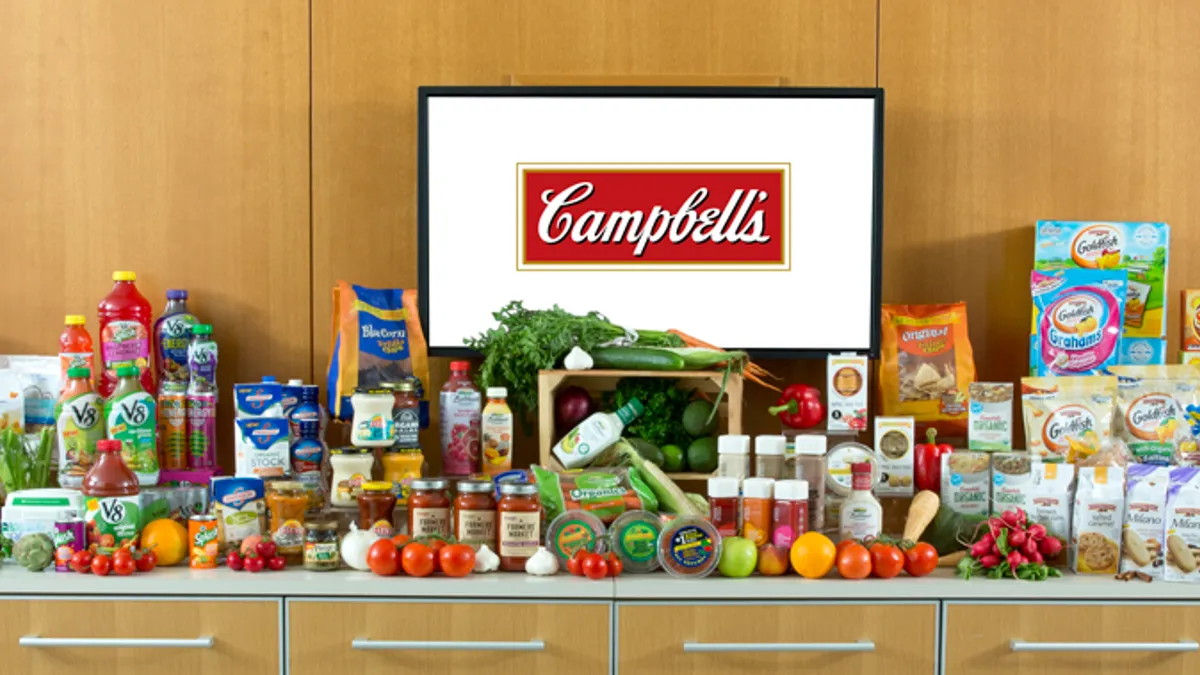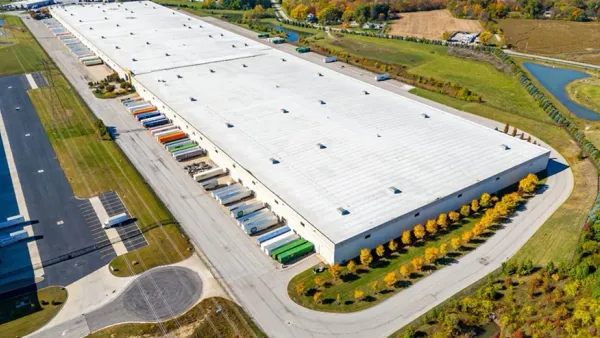Dive Brief:
- Campbell Soup saw its gross margins fall 6.8% in the third quarter of 2018, citing high supply chain costs as contributing factors.
- The company said it saw double-digit increases in the cost of steel and aluminum. Tariffs on the raw materials were proposed months ago but have yet to be implemented.
- Looking ahead, Campbell expects its margins to be down for fiscal 2019, given "continuing headwind on transportation and logistics costs," Anthony DiSilvestro, senior vice president and chief financial officer of the company, said in an earnings call.
Dive Insight:
Campbell's earnings in the third quarter of 2018 were mmm, mmm ... not so good. Although sales increased, margins were down, in large part because of higher than expected supply chain costs, DiSilvestro said.
While probably best known for canned soup, Campbell has also ventured into the perishable goods sector, with its Campbell Fresh division, spawning the need for temperature-controlled transportation.
Demand for those refrigerated containers, however, has grown at double the rate of regular containers in the last five years, creating higher prices for reefers. As a result of the high logistics costs of transporting fresh foods, along with other factors, Campbell Fresh saw an $19 million operating loss last quarter.
"We are all disappointed with the results of C-Fresh, and we acknowledge that they are unacceptable," DiSilvestro said.
The problems at Campbell, however, go beyond the supply chain, he said. "We're seeing low crop yields on carrots. We're seeing lower manufacturing yields."
The higher costs extend all the way to raw materials, such as steel and aluminum. DiSilvestro said prices on the metal rose by double digits, "all of it driven by the impact of anticipated tariffs."
Absorbing cost increases is particularly challenging for CPG companies. While some costs can be transferred to the price of the good, there's a limit to how much consumers are willing to pay for a can of soup.














